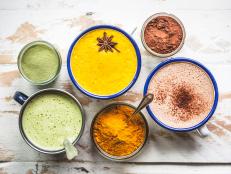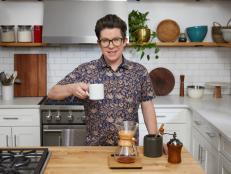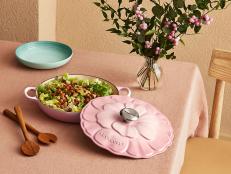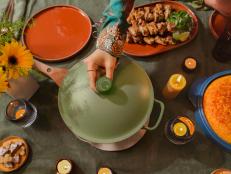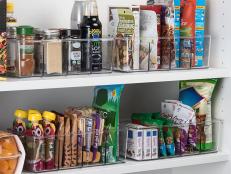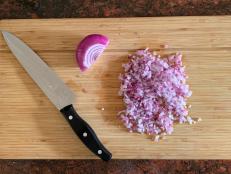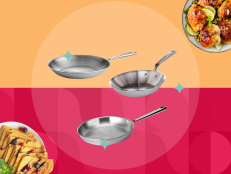Inside a Cup of Turkish Coffee, You Can Find Much More Than Your Fortune
Telling fortunes from coffee ground patterns is a centuries-old tradition. But for Melis Aydoğan, the grounds paved the way for so much more.

Photograph by Catherive Viox, IG: @catieviox
Fortune telling may seem mysterious to some, but to the people of Turkey and first-generation Turkish-Americans, like Melis Aydoğan, it’s an important family tradition. “I just have so many memories of us coming around the coffee table and just laughing about our fortunes,” she shares.
Otherwise known as tasseography, fortune telling through the interpretation of Turkish coffee grinds first appeared in the 16th century during the early days of the Ottoman Empire. Used by sultans and sultanas alike as a way to start conversations with the people around them, this method of fortune telling was often conducted with coffee that had been cooked in hot sand.
Today, the hot sand has been replaced by an electric or gas stovetop and the finely ground coffee is cooked with cold water in an ibrik, or long-handled copper pot. Once brewed, the velvety mixture is poured out into a small demitasse cup and saucer. After consuming the coffee, the drinker places their cup face down onto the saucer and turns it a few times, loosening the grinds that have settled to the bottom and infusing the cup with some of their energy. This movement causes the grinds to drip down onto the plate, forming various shapes, symbols and lines inside the cup, which are then interpreted by a trained fortune teller. Symbols can range from everything to a dove — which might symbolize a new opportunity that’s coming a person’s way — to two separating tree branches — which might mean there’s a big decision they’ll eventually have to make.
Celebrated as a true art form, this tradition of fortune telling is one that is passed down from generation to generation and learned through years of careful observation. This is exactly how Melis learned to tell fortunes from her mom, and how her mom learned it from her very own mother before that. Today the mother-daughter duo continue to share this tradition by offering virtual and in-person fortune telling sessions to all customers who visit their business, Ruya Coffee.

Photograph by Ruya Coffee
Based in Cincinnati, Ohio, Ruya, which means “dream” in Turkish, is not only a coffee shop; it’s a safe place for people to embrace openness and share their true feelings. “It’s a moment to pause, reflect, connect with others and have a conversation,” Melis shares about the overall fortune telling process, which she first engaged in when she was a teenager. It was intimate conversations like these that helped Melis’ mother carve out a place for herself in their community.
Like most immigrants, Melis’ mother, father and brother arrived in the U.S. with very little. “It was the classic immigrant story: no language, no plan, no money, but they figured out a life,” she says. Though Melis watched her mother struggle while she was growing up, it was through Ruya that she was finally able to see her mom become comfortable in her new home, while still honoring the one she had left behind in Turkey.
“That was super fun for me to see because she became the star. She became the main character of this whole experience,” Melis shares while talking about her mom, who’s affectionately known as Mama Ruya on Instagram, and her interactions with customers. “In the beginning, you see the struggles someone goes through, especially in terms of accent and not understanding a lot of cultural norms,” she continues. “So, for me to see her being in the spotlight and everyone wanting that experience, it almost felt like the tables turned. People were actually appreciating what they once never understood.”
Melis believes this appreciation stems from the therapeutic conversations that drinking Turkish coffee and fortune telling brings about, especially when people allow themselves to be vulnerable. “I think that is the most important part. It’s not about the symbols that you see in the grounds; it’s not about the lines, it’s not about any of that. It’s about those moments where you pause and actually listen to each other,” she says.

Photograph by Hailey Bollinger, IG: @haileybollingerphoto
Listening to each other is something she also believes we can benefit from as a society, since it allows us to collectively share our innermost fears, wants, needs and even dreams. “When you are having a conversation with a stranger, you talk about things that you may not talk about with someone you feel like you might see again,” Melis shares. “I may never see a lot of these people ever again, but I’ve learned so much about their life stories, just by saying a little nugget that they’ve tapped into and they’ve connected to.”
These nuggets can range from everything like personal grief to newfound love. “I’ve heard stories of loss,” Melis says, talking about the moments that have stayed with her long after she’s told someone’s fortune. “[I’ve had] people DMing us weeks later that it was their first date and that the fortune telling process was the blossom to their year-long relationship, so it’s super impactful. I think when we all slow down to have a conversation and create a meaningful connection, I think that’s when dreams can actually come to reality.”
Melis also hopes that by sharing this part of her heritage with the people in her own community and beyond that she can change how people see immigrants in America. “It’s an easy and welcoming way for someone to step into a new culture and learn about a new type of person, an immigrant in their community,” she says about Ruya’s overall mission and the products and services she and her mom provide. She also hopes they can inspire other immigrants to create a place for themselves in their new-found home, too. “This isn’t just a Turkish story; this is an immigrant story and I hope it paves the way for more people, because that is what brings richness to America. We are the culture of America. It’s not just burgers and craft beer. We are the ones who are bringing unique tastes, so I really hope seeing people being able to experience Ruya allows them to embrace their own culture and share it with America in very similar ways. Whether it be through cuisine or in any other aspect, whether it’s fashion or sports or music. I think it’s important to not forget where you come from.”
Related Content:


























